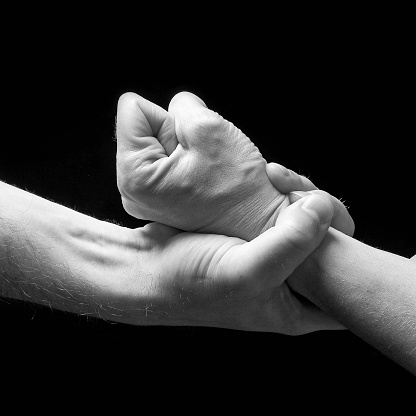
Undocumented immigrant victims of domestic violence are often more vulnerable to abuse because of their immigration status, language barriers and lack of financial security. But the reauthorization of the Violence Against Women Act, which President Obama signed on Thursday, may offer stronger protections for such victims.
Originally passed in 1994, the law authorizes nearly $600 million over the next five years to prosecute domestic violence crimes and protect victims. The federal legislation is reexamined and reauthorized every five to six years, giving policy makers a chance to make needed changes.
With bipartisan support, the 2013 VAWA reauthorization includes amendments that strengthen protections for non-citizen victims of domestic and sexual violence.
Here are some key changes affecting immigrants:
• Stalking was added to the list of crimes covered under the U nonimmigrant status, commonly known as U visa. Crimes already on the list include abduction, blackmail, incest, rape, sexual assault, and unlawful criminal restraint, among others. The temporary U visa, which was approved by Congress in 2006, allows immigrants who are victims of crimes to remain in the U.S. while assisting law enforcement officers in prosecuting the offender. Immigrants with U-visas are eventually eligible to apply for permanent residency and later U.S. citizenship. Adding stalking to the list, advocates say, allows individuals to report stalkers to police, which may prevent stalking from escalating to physical or sexual abuse.
• An unmarried child under the age of 21 will continue to be classified as a minor even if he or she reaches 21 when the parent’s petition is pending.
• The changes strengthened the International Marriage Broker Regulation Act. Though the provision was added in the 2005 VAWA reauthorization, the Justice Department has not yet identified which agency is responsible for prosecuting violators. The 2013 reauthorization calls for an Attorney General report produced in consultation with Homeland Security and the State Department that will identify the prosecuting agency and provide a description of policies for pursuing and prosecuting violators within 90 days.
The House of Representatives on Feb. 28 passed the Senate version of VAWA that included additional coverage for immigrants, gay, lesbian, transgender and bisexual individuals and Native American victims after some House Republicans attempted to pass their own version that excluded LGBT and minority groups.
It passed by more than a two-to-one margin, with majority Republican opposition.
(Related: LGBT survivors of intimate violence have fewer shelters and resources)
“For services providers, it became clear it was a political football,” Susan Bowyer, directing attorney at the Immigration Center for Women and Children’s San Francisco office said of House bill that failed to pass.
The amendments inserted in the failed House bill included anti-immigrant language that Republican sponsors said was an attempt to crack down on fraud, Bowyer said.
Immigrants, she stressed, generally go through an interview with police and an immigration officer before they can receive any benefits. “It’s a fairly safe thing. It was just politics.”
Bowyer lauded the 2013 reauthorization, calling it critical to assisting victims. “All the organizations that help battered women wouldn’t have been funded,” she told calhealthreport.org.
Yet recently triggered automatic spending cuts – known as sequestration – could eliminate some of those programs intended to help victims. The Campaign for Funding to End Domestic and Sexual Violence estimates the cuts will result in some 200,000 fewer programs targeted at victims of sexual and domestic violence. The Budget Control Act would cut 8.2 percent from all federal discretionary programs, including those under VAWA.
Bowyer said funds allocated under VAWA also to go pay for programs administered by police departments and law clinics. These programs are often essential to obtaining immigration relief.
Advocates say immigrants are especially vulnerable to such violence because they come from countries that rarely prosecute such crimes or are from cultures that accept domestic violence. Many victims believe domestic violence is a family matter that needs to be addressed behind closed doors.
Research shows that high rates of poverty, poor education, limited job resources, and fear of deportation and separation from children add to immigrants’ risk.





